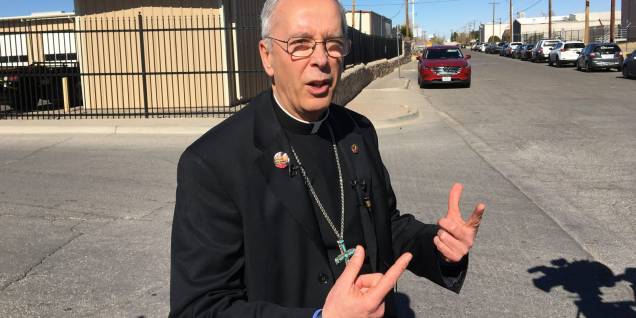
13 December – 6:03AM
I have mostly moved over to Twitter for the remainder of my election night results commentary, so for now will leave you with this:
https://twitter.com/SamHooper/status/1205350489421946880?s=20
In due course I will try to write something about what this election result means for Brexit, for the Union and for the future of conservatism – as the British political realignment takes another giant step forward.
–
13 December – 2:22AM – Labour Civil War, #2
I’m inclined to agree that this is the best course of action from a Labour Party perspective (though notably it means contesting exactly the same new ground that the Tories are trying to claim as their own). However, the unrepentant centrists within Labour will doubtless try to use Corbyn’s failure to shoehorn their way back into power and influence, despite having learned nothing from their past failures.
I’ll say it again: Jeremy Corbyn’s tolerance of antisemitism, agnosticism on Brexit and overall bad leadership does not magically erase the past sins of the Labour centrists, who presided over the broken old political consensus which finally received its coup-de-grace with today’s general election.
–
13 December – 1:50AM
Hot take analysis – Whither Scotland?
The SNP government in Holyrood has been a never-ending catalogue of incompetence and failure, yet in their eternal wisdom Scottish voters seem to have returned a huge caucus of SNP MPs to Westminster. This will only increase pressure for another independence referendum and cement Scotland’s position as a failing one-party member state of the UK.
I’m inclined to say that we should give Nicola Sturgeon her second Scottish referendum, even though it would be an unjustified repeat of 2014 pushed for by sore losers. This time, Scottish nationalists will have to make the case for independence as a small country outside both the UK and the EU, plaintively applying for readmittance to the European Union on unfavorable terms. They would have to adopt the Euro and likely Schengen, which would create a whole host of delicious problems that would make the Northern Ireland Brexit issues look simple by comparison. Perhaps, unlike last time, the separatists would push for independence without publishing a plan of the kind which was so mercilessly dissected by the media and unionists in 2014, running instead on vague phrases and platitudes. Maybe they could print some lies on the side of a campaign bus.
I think that Scottish nationalists would lose another referendum by a wider margin than last time. Ultimately, the SNP has never been able to make a non-partisan case for independence. The whole thing is bound up closely in anti-Tory and anti-English hatred, and has never been an inclusive movement capable of taking onboard Scottish conservatives and others. Nicola Sturgeon’s entire schtick is that the UK is an evil right-wing dystopia that Scotland needs to escape, making it impossible for her to reach out to her centre-right countrymen. And assuming that the UK leaves the EU without suffering major economic disruption in the short term, Scottish independence well and truly becomes the reckless departure from the stable status quo, versus remaining in a closely integrated political union with the rest of the UK.
And let’s not forget the Russians! It’s clear that Vladimir Putin and all of our geopolitical foes would rejoice at the breakup of the UK, the diminishment of our union and the potential threat to the continuity of the UK’s nuclear deterrent (given that our ballistic submarine fleet are based in Faslane, Scotland). Why then should Scottish unionists or the rest of the UK accept a referendum loss, in the unlikely event that the nationalists win? Why would they not simply wage a campaign of obstruction, as Continuity Remainers did with Brexit? Why would they not scream “Russian interference!”, which will certainly be attempted in any referendum on behalf of the nationalists, even if it does not succeed in making a material difference? All of the anti-Brexit arguments and Continuity Remainer hysteria deployed by the SNP will be turned round 180 degrees and fired straight back at Nicola Sturgeon if she attempts to force Scotland out of the UK.
–
13 December – 12:19AM
Hot take analysis – Whither identity politics?
The British progressive left have gone all-in on importing a US-style identity politics culture war into Britain, from embracing every last aspect of avant-garde gender theory to adopting awkward terms such as “people of color”, carefully noting their pronouns and generally bowing down to what comedian Dave Chapelle termed the “alphabet people”.
Doing so made perfect sense to urban progressives with international social networks, all of whom now speak a political language barely comprehensible to anyone else (or even their past selves from as little as a decade ago). But has this embrace of hardcore identity politics and the politics of perpetual victimhood also helped to sow the seeds of progressive defeat in this election?
Recall, Jo Swinson famously stumbled as she attempted to give a definition of “woman” in a radio interview the other day. She and her Liberal Democrat colleagues have gone all-in on progressive identity politics, with its painfully stilted nomenclature and unforgiving cancel culture. Now, multiple sources suggest that Jo Swinson is in danger of losing her seat.
Does all of this go some way to suggesting a “common sense” repudiation of divisive progressive identity politics in Britain? Perhaps. But one scarcely hopes to dream that this represents the high water mark of the identity politics movement, whose activists generally take defeat as a sign that they need to double down rather than question their direction.
–
12 December – 11:58PM
Hot take analysis – Labour civil war
Okay, so what is likely to become of Labour, if the final result conforms anywhere close to the exit poll? Clearly it will spell the end for Jeremy Corbyn’s leadership, but what comes next? Corbyn and his supporters have been working away for several years to broaden and cement their control of the Labour Party machinery and governing apparatus, in addition to which it seems unlikely that their defeated activists are likely to throw their hands up in the air and disown the hard-left platform on which they ran. So what prospects of Labour centrists retaking control of the party? And would this even be desirable?
From my perspective, it would be something of a tragedy if Jeremy Corbyn’s disastrous election allowed discredited Labour centrists to retake the party and waltz back in to power and influence having really done nothing to earn the privilege in terms of having updated their thinking or atoned for their past sins which led to the rise of Corbyn in the first place. Yet there is a real chance that the British electorate’s rightful rejection of Jeremy Corbyn (likely due in no small part to horror at Corbynite antisemitism) will allow that ghastly band of Labour centrists and machine politicians – people who more than anyone represent the old pro-EU political consensus which has now been rejected in multiple elections – to claim vindication.
Already we see two competing narratives start to form as talking heads spin their stories on the news networks. One story (pushed by a stone-faced John McDonnell) is that Labour’s disastrous result is about their opposition to Brexit, pure and simple, and in no way a verdict of the party’s otherwise hard left turn:
But the other story is that the Brexit agnosticism / Remainerism preferred by the centrists is A-OK, and that Labour’s defeat rests entirely on Corbyn’s shoulders. Which of these stories gains the upper hand and becomes the Official Narrative will go a long way toward determining who takes over from Jeremy Corbyn as Labour leader, and the nature of opposition to Boris Johnson’s Conservative government.
–
12 December – 11:35PM
Conservative Victory Catastrophization Watch, #2:
Until progressives and Continuity Remainers learn to at least hide their outright hatred for half the country (there’s no point expecting such extremists to ever actually think better of their fellow citizens, but at least they might try pretending) they will continue to suffer electoral setback after electoral setback – and ever see them coming until the votes are counted.
–
12 December – 11:11PM
Conservative Victory Catastrophization Watch, #1:
https://twitter.com/jacobisanadult/status/1205250774625923074?s=20
–
12 December – 11:07PM
A poll for you all to consider:
https://twitter.com/SamHooper/status/1205261785005248512?s=20
–
12 December – 10:31PM
On economics and identity:
The old truism seems to be proved correct once again.
–
12 December – 10:27PM
And now, a moment of schadenfreude
Gosh. It’s almost as though spending three years:
- fighting a furious rearguard action against the result of a democratic referendum which everybody previously promised to respect
- pretending that a very milquetoast, centrist Tory party was somehow analogous to the rise of Hitler and Nazism
- repeatedly tolerating the cancer of antisemitism and allowing antisemites safe harbor in the Labour Party
- embracing every virtue-signaling, low-intellect celebrity endorsement that Twitter could amplify
- acting as though one has a monopoly on compassion, virtue and reason
are a terrible formula for electoral success. Who could possibly have predicted that embracing a campaign of being utterly insufferable might fail to persuade many of the same people whose votes you needed but just could stop insulting for three long years?
Continuity Remainers in Labour, the Liberal Democrats and the SNP – enjoy the fruits of your labour. The frustration and sorrow you doubtless feel is richly, richly deserved.
–
12 December – 10:00PM – EXIT POLL RELEASED
At some point you just need to pick a direction, set a course of action and follow through on it. If the exit poll is remotely correct and the Tories are heading for a majority of around 86, then Britain can take at least one step forward in a roughly discernible direction rather than shuffling round on the spot with our ankles tied together.
Also, it’s worth noting that political parties hardly ever successfully renew themselves while in government – partly because the biggest majority comes first time round, followed by a tacking back toward the centre as the majority is threatened and chipped away in subsequent elections. But while the Tories certainly have not shown any real policy ambition during the course of the election campaign, might a solid majority and the political assurance that it brings be the shot in the arm that they need?
–
12 December – 9:43PM
We get the politicians we deserve
One of the themes of this election has been the unpalatable choice of leadership options – both Boris Johnson and Jeremy Corbyn being hugely flawed, often unlikeable and polarizing individuals. But rather than bemoaning the poor choice before us, maybe we need to look closer to home. We continue to reward these individuals with our votes, make excuses for their failings, believe the best of them in light of all available evidence to the contrary, and cheer them on with our social media accounts. But do we also effectively demand that politicians lie to us, before hypocritically complaining when they do so?
Paul Goldsmith advances the argument:
I will leave you with these two thoughts…imagine if Boris Johnson told millions of Leave voters the exact risks of both his deal and a possible No Deal Brexit over the next few years…imagine if Jeremy Corbyn told voters that it is very possible that people other than the top 5% of income earners would have to pay more tax, or future generations pay off more debt, to afford his policies…would they win elections? No.
We know this because the one time this was tried..by Theresa May in 2017, who, thinking she would win a massive majority, attempted to address some serious issues such as social care and tried to remove the ‘triple lock’ on pensions and refused to promise no tax rises. She lost the Conservatives’ majority.
Politicians lie because voters don’t want to hear the truth, and until we wake up to our responsibility for that, we deserve the politicians we get.
Many people in both the pro- and anti-Brexit camps have no interest in examining their simplistic “buccaneering Global Britain” or “friendship ‘n cooperation with Europe” tropes, choosing instead to believe that leaving the EU is an end in itself or that remaining in the EU by overruling the 2016 referendum result is okay because the EU is either fine or can be magically fixed on a whim, and that doing so will have no negative consequences.
Even those of us who claim to want smaller government tend to squeal a lot when the bits of government activity we actually like are suggested for a trim. And hardly anyone seems willing to peel back the embarrassing Cult of the NHS, that last remaining bastion of blinkered British exceptionalism, which insists that our healthcare service is the envy of the world (yet strangely not copied by any other nation on Earth) and also perpetually on the brink of collapse.
We demand exponential improvement across a whole range of areas, but are unwilling to tolerate any real disruption or change to achieve it. In these circumstances, do we not actively incentivize politicians to lie to us, telling us that we can have everything on our wish list for free, and that the only thing currently preventing us from having them is a lack of imagination or belief in whatever Utopian idea is being peddled?
Given all of this, it is probably fair to say that we have the politicians we deserve. And when the votes are all counted, I imagine that whoever we put into 10 Downing Street will also be richly deserved.
–
12 December – 9:21PM
Prediction
Not much point in making a prediction at this point, other than to be proved laughably wrong in 40 minutes’ time, but if pressed I would predict a small-to-modest Tory majority, probably enough to get Boris Johnson’s Brexit “deal” over the line but with the tiresome rainbow alliance of progressive parties continuing to act as an effective obstruction to anything but the blandest and most non-controversial domestic legislation.
I hope I am wrong, and that the Tories secure a more robust working majority – not because I admire Boris Johnson or much like the present incarnation of the Conservative party (getting Brexit done and unleashing Britain’s potential is not a programme for government or an effective diagnosis of our national challenges) but because the alternative of another hung parliament and enfeebled minority or coalition government is worse. Britain has been drifting – on domestic policy, geopolitically and every other way – since 2016, and at some point it is necessary to stop arguing, pick a direction, commit to a course of action and let the consequences (rather than outrage on social media) shape the next steps.
Not that I expect it to happen happen, but if Jeremy Corbyn were to somehow become prime minister I believe that while it would be bad domestically and awful for our international standing and national security, the more radical parts of his domestic agenda (on taxation, nationalization and so forth) would be largely fought to a standstill by obstructive centrist forces fighting a rearguard action. Lord knows that they have honed their skills in this regard, doggedly holding up Brexit since 2016.
In such an unfortunate scenario, Labour’s appalling tolerance of antisemitism would likely continue unabated, and while this would be unimaginably worrying for Britain’s Jewish community and an appalling indictment of the Left in general, Labour’s anti-Jewish animus would likewise fail to translate into any kind of government policy thanks to the forces of restraint and moderation described above.
Anyhow, 30 minutes to go now. Let’s see just how wrong I am.
–
12 December – 8:39PM
Welcome!
Welcome to this live blog of the 2019 UK winter general election results. Yes, for some inexplicable reason I have decided to come out of blogging semi-retirement to offer semi-partisan hot takes on developments as they occur tonight and tomorrow morning.
I’m sure I will quickly come to regret this decision and/or give up half way through. However, I intend to keep going for as long as things remain interesting and there are still issues and arguments to dissect, advance and rebut. If things die down on here, I’m probably still ranting away on Twitter @SamHooper.
Please feel free to share your thoughts using the Comments feature, by emailing me at semipartisansam@gmail.com or engaging with me on Twitter @SamHooper.

–
Agree with this article? Violently disagree? Scroll down to leave a comment.
Follow Semi-Partisan Politics on Twitter, Facebook and Medium.



















